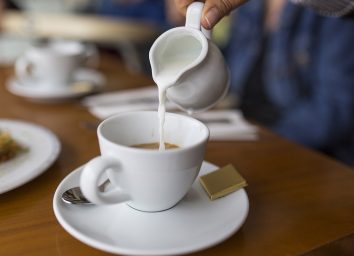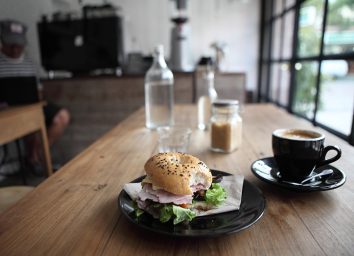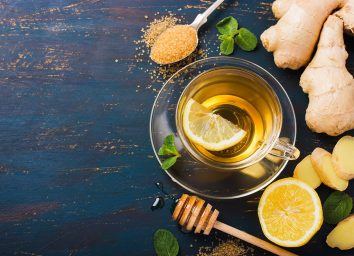5 Signs You're Drinking Too Much Coffee, Expert Says

For many people, their morning cup (or three) of coffee is prime motivation to get out of bed—it gives you an energy boost, it tastes good, and the ritual of sipping from your favorite mug sets the tone for the day. But then you make another cup, and soon enough, it's time for your afternoon Starbucks to ward off the 4 p.m. yawns…
If that sounds familiar, 85% of Americans are right there with you enjoying their caffeine. Even though drinking coffee isn't necessarily bad for you—in fact, it has some health benefits—there is such a thing as sipping too much java. Caffeine is still a drug, and over-consuming can trigger adverse reactions in your body.
Kelli McGrane RD, for the calorie counting app Lose It!, reveals five signs of excessive coffee consumption. If you're experiencing them, consider this your wake-up call that maybe it's time to cut back. And while you're making healthier changes, be sure to stock up on The 7 Healthiest Foods to Eat Right Now.
You're not sleeping well.
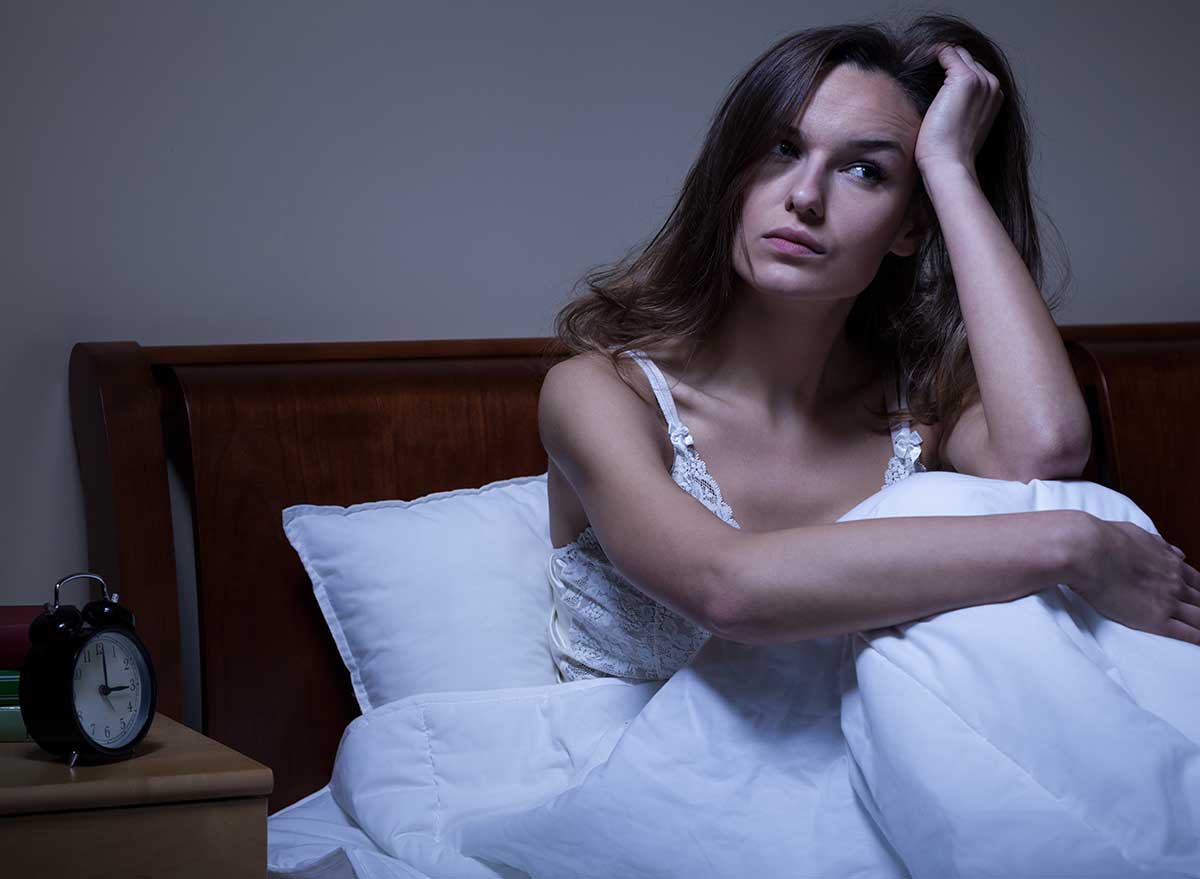
While coffee can help you wake up in the morning and fight fatigue throughout the afternoon, "the timing and amount of caffeine consumed during the day can make it harder to fall asleep, plus reduce the total amount of shut eye you get at night," says McGrane. Research shows that consuming substantial amounts of caffeine even six hours before bedtime can disrupt your sleep quality. (Read more: Here's what happens to your body when you stop drinking coffee completely.)
You're feeling anxious.

Coffee is a stimulant, which triggers your body to go into "fight or flight" mode. Thus, drinking even moderate amounts of caffeine can lead to feelings of anxiety and stress—especially if you already struggle with a general anxiety disorder. One study in healthy adult men found those given 300 mg of caffeine (about three cups of coffee) prior to a stressful task reported increases in blood pressure, stress hormones, and double the reported stress levels compared to those given a placebo. (Related: These are the 17 foods that can make anxiety or depression worse.)
You're experiencing the "laxative effect."
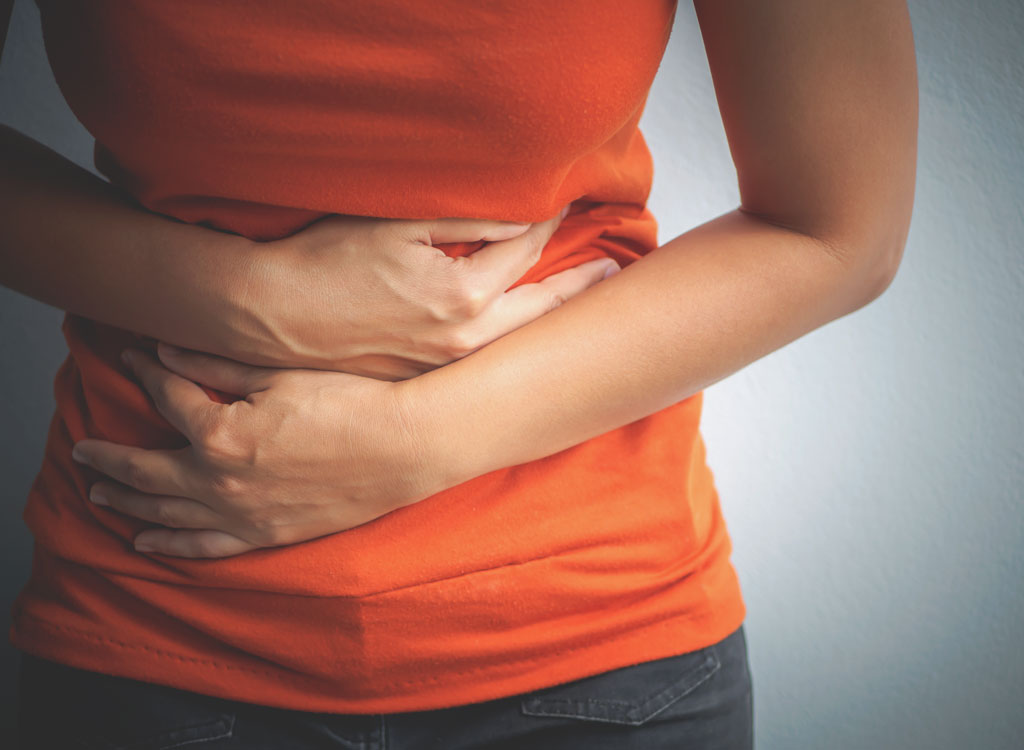
Maybe you've already noticed this, but coffee makes you poop. The caffeine in your java activates your colon and results in an increased need to, well, go. According to the International Foundation for Gastrointestinal Disorders, drinking just two or three cups of coffee a day is enough to cause diarrhea—and you better hope that urge doesn't hit in the middle of that board meeting.
You have the jitters.
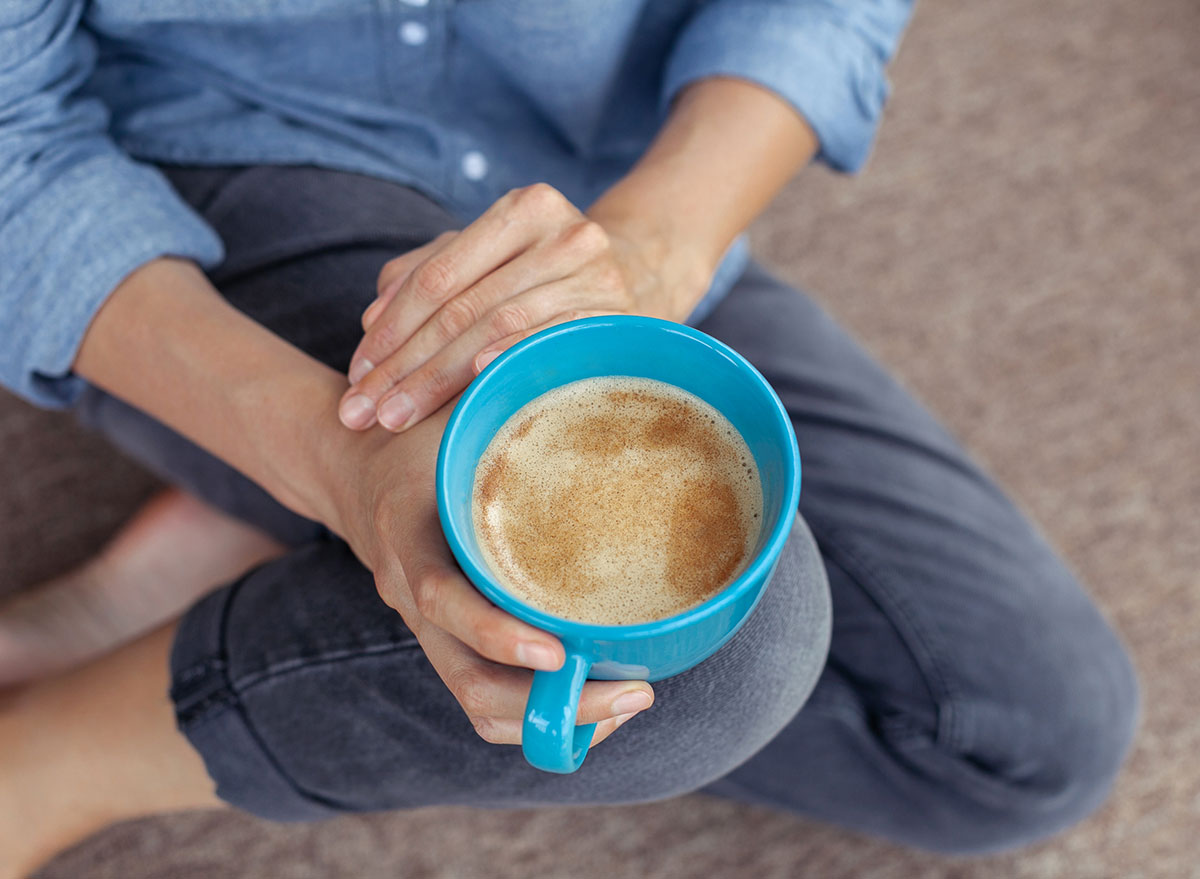
The "coffee jitters"—AKA, a rush of energy, followed by a crash—are the real deal and may be a sign it's time to reign in your caffeine intake. "Caffeine speeds up your central nervous system," says McGrane. "As a result, drinking more than moderate amounts of coffee—about three cups in individuals not sensitive to caffeine—can cause you to feel shaky. You may even notice nausea or feel like your heart is racing." (Related: Here are 7 Signs You're Eating all the Wrong Things.)
You've gained weight.
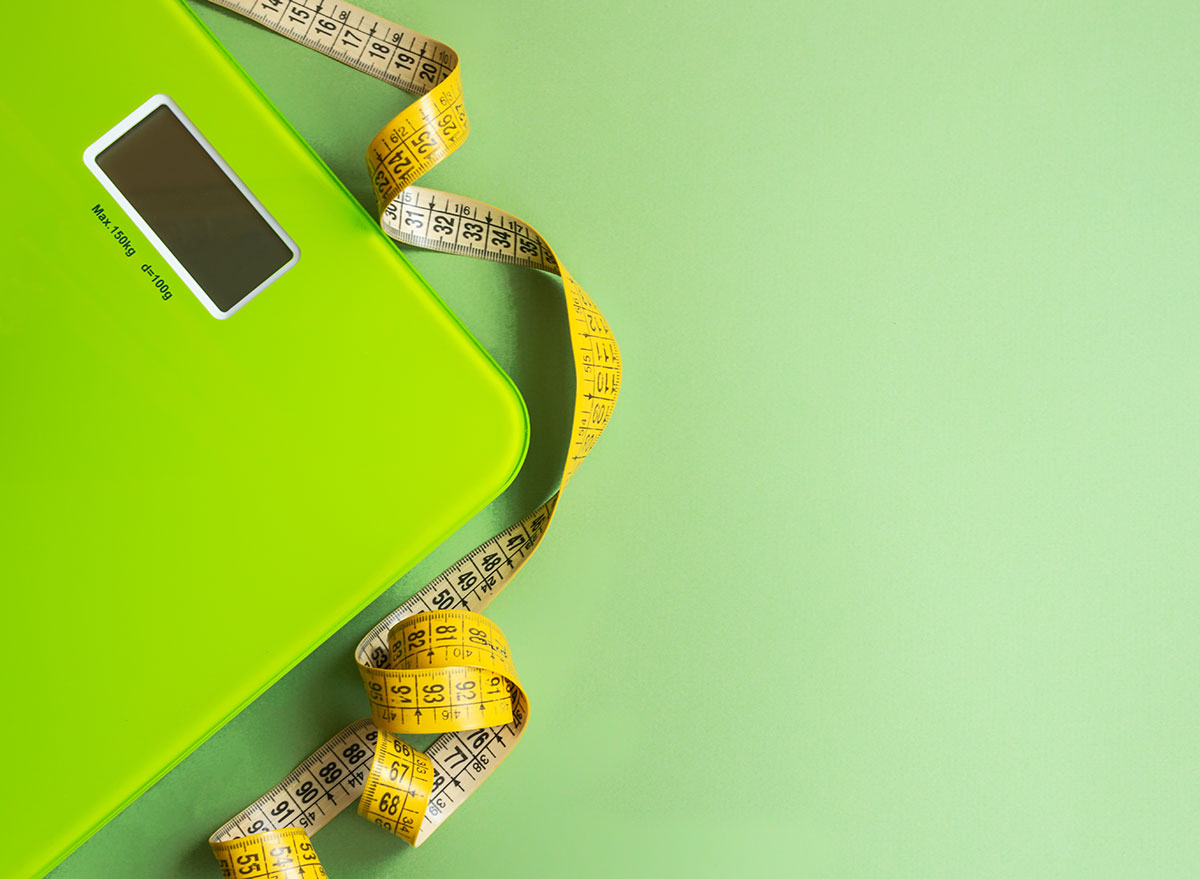
"Unless you drink it black, consuming several cups of coffee with milk, cream, or sugar per day can add up calorie-wise," says McGrane. "Overtime, those extra calories can lead to increases on the scale." So yes, even if you don't order dessert-esque caramel lattes from the coffee shop, if you're not careful with your additives, your regular brewed coffee can also turn into a fat-and-sugar bomb. For reference, if you add 2 teaspoons of sugar (24 calories) and 1 ounce of heavy cream (101 calories) to your cup and do that twice a day, that's 375 calories just from your caffeine fix. Yikes. Cutting back on your caffeine intake may be a good thing, considering there are plenty of secrets that Starbucks employees aren't telling you, too.
